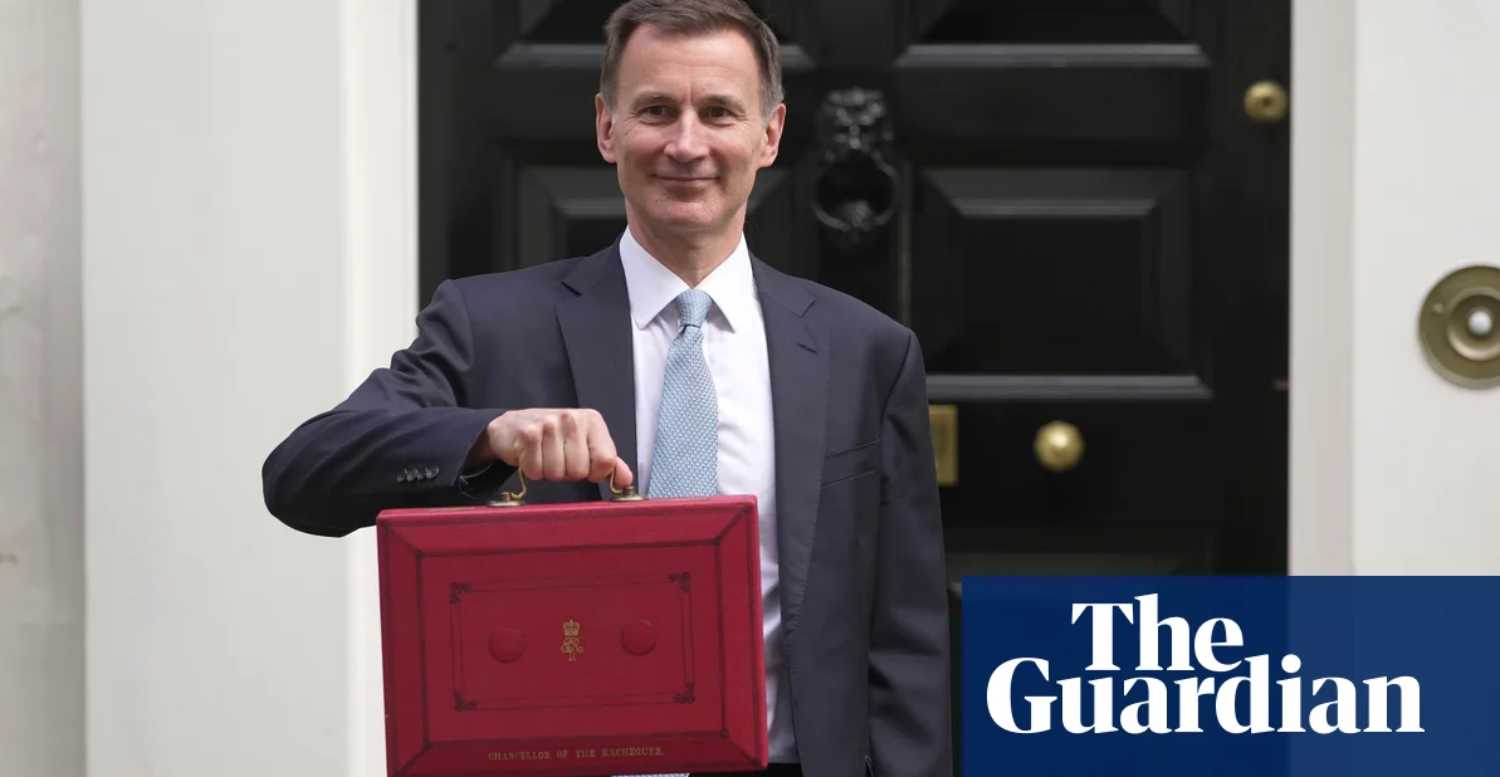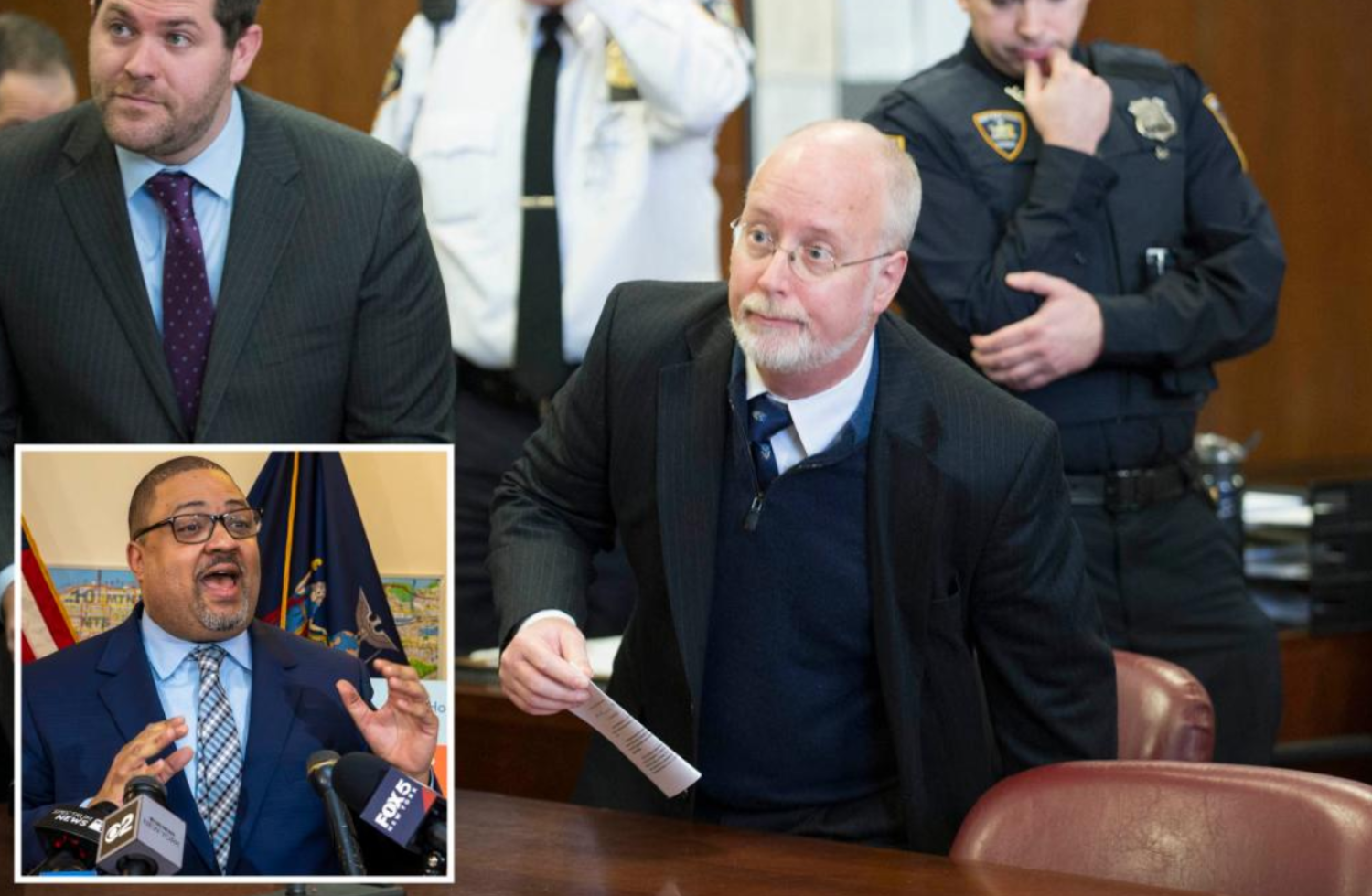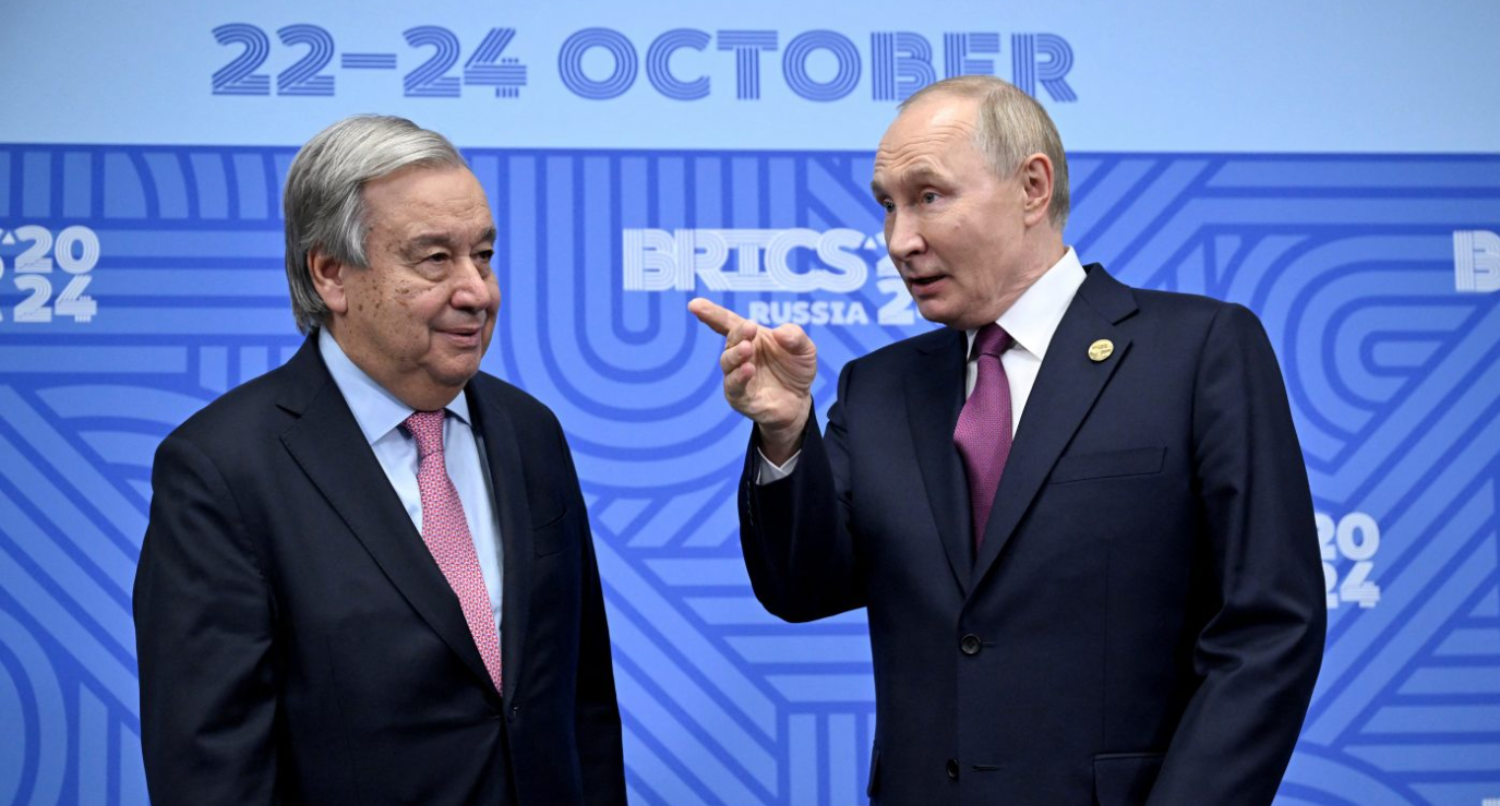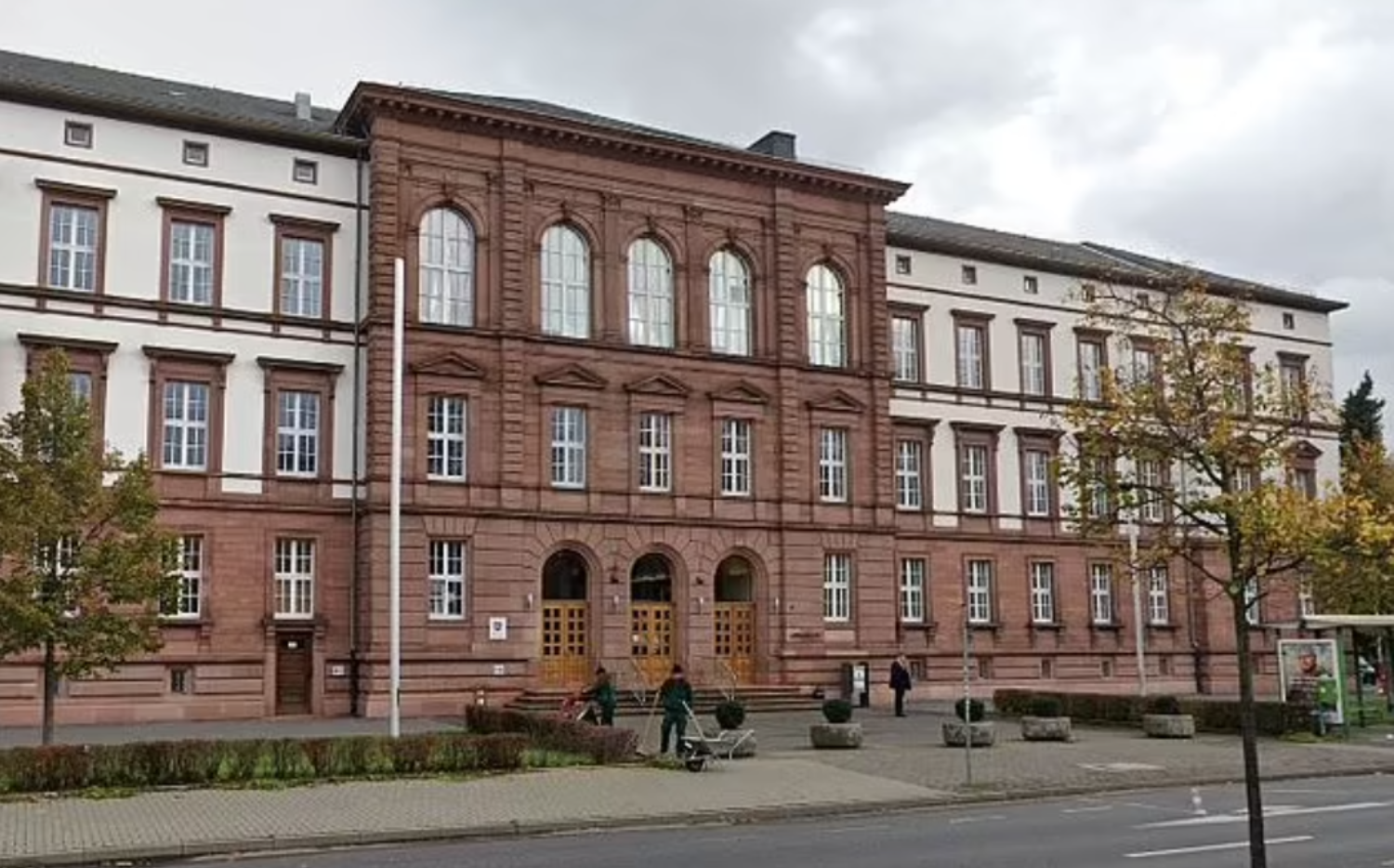-
Posts
10,782 -
Joined
-
Last visited
Content Type
Events
Forums
Downloads
Quizzes
Gallery
Blogs
Everything posted by Social Media
-
Keir Starmer, the British prime minister and a leader who values rule of law and a moderate approach, now faces an unexpected challenge: Donald Trump’s return to the political stage. For Starmer, Trump’s unpredictable and controversial approach may create a nightmare scenario, contrasting starkly with the British prime minister’s principles and posing a diplomatic challenge. "I don’t think you will find a leader around the world less like Donald Trump than Keir Starmer," noted Tom Baldwin, a biographer of Starmer. Indeed, while Starmer champions a calm and measured leadership style, Trump’s brash and combative nature presents a tough obstacle. Throughout his first presidency, Trump challenged U.S. allies nearly as much as he confronted adversaries. His actions often stirred tensions over issues like trade and defense spending, and in the British context, he placed considerable pressure around Brexit negotiations. Some predict that a second Trump presidency could bring an even more forceful approach. "He butted heads pretty good between 2016 and 2020," shared a Republican staffer in Washington, speaking on condition of anonymity. "But I feel he thinks he gave way a little bit too much." Starmer, who ascended to the premiership on a solid electoral victory, is now one of the few influential center-left figures on the world stage. With leaders like France’s Emmanuel Macron and Germany’s Olaf Scholz facing difficulties, Starmer may find himself facing Trump’s assertive style without much external support. However, he is not without strategic tools. David Lammy UK Foreign Secretary on his views of Trump back in 2017 After Starmer’s win in July, Trump initially praised his longtime ally, Nigel Farage, who managed to win five seats in the House of Commons with Reform UK. Trump did acknowledge Starmer’s electoral success when they met in New York that September, but this did not eliminate the potential for diplomatic tensions. From the ongoing Ukraine conflict to trade issues and Britain’s recent decision to transfer the Chagos Islands to the Maldives, there is no shortage of possible flashpoints. Moreover, Starmer might find that a controlled disagreement with Trump could serve as a political tool. "It’s not always going to be to Keir Starmer’s detriment to have occasional public disagreements with Trump," shared a former advisor to Theresa May. As Starmer prepares for a potential Trump return, he will need to focus on maintaining the core aspects of the U.K.-U.S. relationship, all while balancing the challenges Trump may bring. "Starmer will need to deploy his best diplomatic skills in order to protect the essential elements of the U.K.-U.S. alliance and prioritize issues that Britain can bring most influence to," explained Owen, a former Labour advisor. To achieve this, Starmer will likely need to navigate Trump’s often tumultuous style, sidestepping unnecessary disputes in order to safeguard a strong transatlantic alliance. Based on a report by Politico 2024-11-07
-
Treasury officials may have violated legal protocols by not disclosing a £9.5 billion spending commitment in the Conservative budget last March, as members of Parliament were informed. According to Richard Hughes, head of the Office for Budget Responsibility (OBR), this undisclosed expenditure could have significantly altered the economic forecast tied to Chancellor Jeremy Hunt’s pre-election budget. The law mandates that the Treasury must provide accurate budgetary information to the OBR to ensure a reliable economic forecast. Hughes explained to the Commons Treasury committee that he had no reason to complain when the budget was initially presented because, in his words, “what you don’t know, you don’t know.” However, Hughes asserted that if the £9.5 billion commitment had been revealed, it would have “materially changed” the forecast’s economic impact assessment. The issue has led Treasury committee chair Meg Hillier to pursue a legal inquiry to determine if any laws were indeed broken. When asked about the accountability of Downing Street officials, a spokesperson for Labour leader Keir Starmer pointed to Tory ministers, stating that “civil servants advise and ministers decide,” suggesting that ultimate responsibility lies with the ministers overseeing these policy decisions. Hughes, responding to broader questions about fiscal policy, warned that the Labour party's proposed increase in employers' national insurance contributions could lead to lower real wages in the long term. Chief economic adviser David Miles added that about three-quarters of this tax increase’s impact would fall on workers, with the remaining burden on profits. “Nobody escapes completely,” Miles stated, though he emphasized that the brunt would affect wages more than profits. Productivity growth, another critical economic factor, has been “abysmal” over the past decade, according to Miles, but he anticipated improvement through the end of the decade, which could, in turn, drive wage recovery. Reflecting on the OBR’s oversight procedures, Hughes announced that the organization is revising how it collaborates with the Treasury in producing economic forecasts. Legislation established in 2010 by then-Chancellor George Osborne outlines the parameters of the Treasury-OBR relationship. Hughes described the shift as moving from a “system of trust” to a “trust but verify” approach, aimed at preventing similar disclosure failures in the future. This change will require the OBR to closely scrutinize departmental spending limits and budgetary preparations to ensure any budget pressures are openly discussed and appropriately managed. The breakdown in this high-trust relationship became apparent when the OBR discovered the previously undisclosed £9.5 billion spending pressure. Hughes said the OBR had built a system assuming that departmental spending was well managed within allocated limits. He remarked, “That system very clearly broke down,” noting that the OBR was unaware of the extent of the additional budget pressures until Chancellor Rachel Reeves highlighted a £22 billion shortfall in July. In explaining how the OBR could have overlooked such significant budgetary pressures, Hughes pointed out that while the Treasury has numerous public servants dedicated to managing departmental budgets, the OBR operates with a much smaller team focused on scrutinizing perceived high-risk areas. The inquiry into the Treasury’s omission revealed that civil servants and ministers withheld information on £9.5 billion in spending pressure, despite legal requirements to disclose such details to the OBR. Hughes emphasized the importance of this discovery, noting that even slight economic shifts—like a 0.3% increase in interest rates—could deplete the fiscal buffer that Labour’s budget currently maintains. The “fiscal headroom,” or buffer between total income from taxes and spending, was set by Labour at £11 billion over five years. With economic volatility, that cushion could quickly vanish, causing the Treasury to breach its debt reduction target. OBR committee member Tom Josephs underscored this precarious situation by noting, “To get the current balance down to essentially zero... we have 0.3%.” Hillier, chair of the Treasury committee, called this scenario a significant risk, highlighting how easily a minor change in interest rates could destabilize the budget plans. Based on a report by the Guardian 2024-11-07
-
Spanish influencer and lawyer Ruben Gisbert has drawn sharp criticism for deliberately covering himself in mud before filming a news segment about recent floods in Valencia. Filming for the Spanish news program *Horizonte*, hosted by journalist Iker Jiménez, Gisbert was seen kneeling down and smearing mud on his legs before delivering what he claimed was a "report from the scene." Gisbert defended his actions on social media, explaining that he wanted to "ensure continuity" in his appearance so it would match an earlier shot. He acknowledged his misjudgment, admitting, "I'm not a reporter and I'm not used to making live connections." He later called the act a "stupid mistake." Jiménez, who had not been involved in instructing Gisbert to add such dramatic flair, expressed his disappointment with the influencer's conduct. In a video statement, he noted, "I cannot count on him; he has failed me. I was shocked when they sent him to me." Jiménez added that the actions were unauthorized and never part of the reporting plan, emphasizing that the program had no intention of "dramatizing something." The broadcaster behind *Horizonte* confirmed that Gisbert would no longer contribute to the program, stating that his actions were "despicable" and had disrespected the gravity of the situation. The incident has reignited debate over the role of social media influencers in serious journalism, particularly as they are increasingly used in televised reports and coverage. Based on a report by Daily Telegraph 2024-11-07
- 1 reply
-
- 2
-

-

-
A New York state court has held Manhattan District Attorney Alvin Bragg in contempt for refusing to disclose key documents related to a plea agreement with Dr. Robert Hadden, a former gynecologist convicted of sexually abusing his patients. This legal order mandates Bragg’s office to comply with a subpoena to produce records from a 2014 criminal case involving Hadden, as Judge Richard G. Latin ruled last month. Attorney Anthony DiPietro, who represents hundreds of Hadden's victims in a civil lawsuit, is pursuing these documents along with communications between the DA’s office and Columbia University, where Hadden practiced. The 2016 plea deal was arranged by former DA Cyrus Vance Jr., who accepted a no-jail plea deal with Hadden, despite the doctor’s admission to sexually abusing six women under his care. This agreement notably limited prosecution for any similar offenses committed prior to February 22, 2016. According to reports at the time, federal prosecutors highlighted what they saw as a "deliberate" effort to withhold records related to the agreement during their own case against Hadden in 2020. DiPietro has been outspoken about his disappointment with the DA's handling of the case, asserting, "They should be prosecuting Columbia [University], not protecting them.” DiPietro has already won settlements exceeding $250 million for over 230 clients in related cases, and he warns that the district attorney's office could face substantial penalties if they fail to comply with the imminent deadline. Filed in 2022, the current case, which is in Manhattan Supreme Court, involves nearly 550 plaintiffs. Given Hadden’s years-long abuse and what DiPietro describes as a "coverup" by Columbia University, he estimates potential damages may exceed $1 billion. Hadden’s criminal actions, which included sex trafficking, ultimately led to a federal conviction in 2023, resulting in a 20-year prison sentence. Victims have recounted horrific experiences in which Hadden made inappropriate sexual contact during what were supposed to be standard medical exams. DiPietro insists these records are vital, contending they undermine Columbia University’s stance that it was unaware of Hadden’s actions. Earlier this year, the court found evidence supporting DiPietro's claims that Columbia had been issuing “catch and kill” letters to silence Hadden’s victims, reportedly requiring them to sign non-disclosure agreements to access the university’s $100 million survivors' fund. Calling the fund "woefully inadequate," DiPietro welcomed the court's recent restraining order that now bars Columbia from contacting any of the survivors in the case. Based on a report by NYP 2024-11-07
-
In an impassioned speech in Florida, Donald Trump declared victory in the U.S. presidential election, despite votes still being counted in several crucial states. Standing before a crowd of enthusiastic supporters in West Palm Beach, he expressed gratitude for what he described as an “extraordinary honor” and pledged his commitment to the American people. “Look what happened – is this crazy?” he remarked to the cheering crowd, adding, “I want to thank the American people for the extraordinary honor of being elected your 47th president. I will fight for you and your family and your future, every single day I will be fighting for you with every breath in my body." Sky News's U.S. partner network NBC reported that Trump is now within just four electoral votes of securing the presidency. Meanwhile, Republicans have confirmed their control of the Senate, though the results for the House of Representatives remain uncertain. “We overcame obstacles that no one thought possible,” Trump said with pride, surrounded by his family, including his “beautiful wife Melania” and his “amazing” children. He spoke about his vision to help the nation heal, remarking, “We’re going to help our country heal, we have a country that needs help and it needs help very badly.” As part of his ongoing vision, he reaffirmed his commitment to addressing illegal immigration, a hallmark of his past campaigns and a central piece of his policy promises. Reflecting on the challenges he’s faced, Trump referenced a reported assassination attempt against him during a rally in Pennsylvania earlier in the year. “Many people have told me that God has spared my life for a reason, and that reason was to save our country and to restore America to greatness,” he said. “Now we are going to fulfill that mission together.” The former president’s remarks underscore his belief in a renewed sense of national pride and a prosperous future for the country. Whether his vision for America’s “golden age” will be realized remains to be seen, but his supporters celebrated with confidence, hopeful that their candidate would indeed return to the White House. Based on a report by Sky News 2024-11-06
- 311 replies
-
- 16
-

-

-

-

-

-

-
The United Nations recently passed a landmark Global Digital Compact, aimed at regulating the Internet while safeguarding democratic values. Despite pressure from authoritarian states, the inclusion of human rights as a central tenet in the Compact represents a win for Western-backed, rights-oriented governance models. The resolution has not pleased Russia and China, both of whom have long advocated for “Internet sovereignty” — a concept that would grant countries complete control over their digital ecosystems, essentially allowing each state to regulate its corner of the Internet without international oversight. For years, Russia and China have pushed for this shift, framing it as a means to protect national sovereignty. However, many argue that their real goal is to evade accountability in matters of censorship, surveillance, and digital control. By promoting a state-centric approach, these countries aim to limit outside influence over how they handle information and online platforms within their borders. Moscow, for instance, has historically resisted frameworks that would restrict its ability to control online content and Internet infrastructure, arguing instead that such efforts threaten state sovereignty. The Compact’s emphasis on human rights is a victory for Western advocates, including the United States and the European Union, who have pushed back against state-centric control models. Nevertheless, the UN resolution is non-binding, leaving the door open for future challenges from dissenting nations. Both Russia and Argentina have dissociated themselves from the Compact, signaling resistance to its human rights-based approach and jeopardizing efforts to preserve a globally open Internet. Argentina’s decision to distance itself from the Compact highlights a larger concern among developing countries, particularly in the Global South. Many nations in these regions resist global frameworks that they perceive as potentially encroaching on their national autonomy. Argentina’s stance reflects a broader unease, raising concerns that others might follow its lead. Should this happen, the already fragile consensus underpinning the Compact could weaken further, making future negotiations more complex and contentious. The new Compact represents the latest chapter in the UN’s decades-long involvement with Internet governance. Back in 2001, the UN General Assembly established the World Summit on the Information Society, which eventually led to the creation of the Internet Governance Forum (IGF). The IGF has served as a multi-stakeholder platform, bringing together governments, civil society, and the tech industry to foster dialogue on digital issues. However, recent technological advancements, particularly in artificial intelligence, coupled with rising geopolitical tensions, led UN Secretary-General António Guterres to propose a more robust framework to meet these emerging challenges. Guterres’ vision for the Global Digital Compact goes beyond Internet governance, aiming to bridge the digital divide, promote ethical AI, and align technology policies with the UN’s Sustainable Development Goals (SDGs). Yet, as optimistic as this initiative may seem, the path forward is fraught with challenges. Russia and Argentina, among others, are expected to resist the Compact’s principles, setting the stage for future debates over the UN’s language on Internet governance and other key policies in the digital realm. Russia and China may view their acknowledgment of the UN General Assembly’s role in digital governance as a victory. By engaging in this process, they have effectively shifted the conversation away from multi-stakeholder governance, which involves a range of actors, toward a state-centered model. This pivot away from a collaborative, multi-stakeholder approach toward one prioritizing national sovereignty could, in practice, empower authoritarian regimes, which might use the pretext of sovereignty to curtail freedoms and shield themselves from international scrutiny. For the European Union, however, the Compact represents an opportunity to assert democratic values and human rights in the digital space, offering a counter-narrative to China’s state-centric model. One potential avenue for the EU is to expand its Global Gateway initiative, which aims to invest in digital infrastructure projects in developing countries. By enhancing digital infrastructure worldwide, the EU could foster a more open and democratic digital landscape, reducing the appeal of authoritarian alternatives. Based on a report by CEPA 2024-11-07
-
- 1
-

-
Recent reports suggest that Russia may have been involved in a covert plot to send incendiary devices on flights bound for the United States and Canada. According to the *Wall Street Journal* (WSJ), Western security officials believe that devices ignited in Germany and the United Kingdom in July were part of a Russian operation aimed at testing the feasibility of setting fires aboard international flights. The incidents in question took place at DHL logistics hubs in Leipzig, Germany, and Birmingham, United Kingdom. Explosions occurred in July, sparking a swift investigation into those responsible. A spokesperson from DHL Express later told CNN that the company is “aware of two recent incidents involving shipments in our network,” and confirmed that they are “cooperating with the relevant authorities” to understand what happened and prevent similar occurrences. The incendiary devices in question were reported to be electric massagers containing a magnesium-based flammable substance. These packages were reportedly sent from Lithuania to the UK, seemingly as part of a test run to examine how such materials could be smuggled onto planes bound for North America. The WSJ also reached out to Russia for comment on the alleged plot. Dmitry Peskov, a Kremlin spokesperson, dismissed the accusations, stating, “We have never heard any official accusations” and referred to the report as another example of “traditional unsubstantiated insinuations from the media.” Meanwhile, Polish authorities recently announced the arrest of four individuals suspected of participating in international sabotage activities, while an additional two suspects remain under an international search warrant. According to a statement from Poland’s national prosecutor’s office, this group was involved in sending “parcels containing camouflaged explosives and dangerous materials” to various countries in the European Union and the United Kingdom. The explosives in these parcels reportedly ignited or detonated spontaneously during land and air transport. Authorities believe the group’s ultimate goal was to assess the transfer channels of these dangerous shipments in order to ultimately direct them toward the United States and Canada. In the UK, a spokesperson from the counter-terrorism police confirmed that they are “investigating an incident at a commercial premises in Midpoint Way” in Birmingham. On July 22, a package reportedly caught fire at the location, though it was quickly contained by staff and the local fire brigade. “There were no reports of any injuries or significant damage caused,” the spokesperson noted. Based on a report by CNN 2024-11-06
-
An American conspiracy theorist, Daniel Martindale, has made headlines after he requested Russian citizenship, claiming he has actively supported the Kremlin in its efforts against Ukraine. Martindale, 33, recently appeared on Russian state media, displaying his U.S. passport and birth certificate while detailing his alleged activities on behalf of Russia over the past two years. Martindale claims to have worked as a missionary in Poland prior to entering Ukraine around the time of Russia’s invasion in early 2022. Martindale stated, “For the last two years, I have done everything to save the lives of Russian soldiers and ensure some kind of future for Russians in Ukraine,” further expressing his desire to continue his work. According to reports, Martindale initially connected with Russian forces through the messaging app Telegram, providing them with what he claims were critical details about Ukrainian infrastructure and specific information on the Donetsk region, an area that has experienced significant conflict. Russian media outlet Izvestia reported that Martindale was allegedly given a Kremlin-supplied phone to coordinate with troops and communicate using drones. Martindale’s cooperation with Russian forces reportedly continued until Russian troops in the war-torn village of Bohoyavlenka, in Donetsk, extracted him from the battlefield and transported him to Russia. His claims have yet to be verified, and U.S. officials have not yet responded to the matter, with the U.S. Embassy in Moscow refraining from issuing any comments on Martindale’s actions or his request for Russian citizenship. According to social media accounts linked to him, Martindale was born in 1991 and attended a private university in Indiana before traveling across Europe. Posts on Russian social media platform VKontakte indicate he visited Vladivostok, Russia, in 2018 and had changed his listed residence to Poland by 2020, as reported by Radio Free Europe. Beyond these details, few specifics are known about his reported support for Russian military efforts. Martindale has voiced anti-American sentiments, including his belief in conspiracy theories related to the September 11 attacks. In his interview with Russian media, he stated, “I understand from about 2005 that the United States government is my enemy, personally, because of the fact that they are responsible for the terrorist attacks of Sept. 11th, 2001.” He emphasized that he has no intention of returning to the U.S. Instead, Martindale expressed a desire to settle in Russia, start a family, and build a life on Russian soil. He described his vision for the future, saying, “When the war is over and peace is restored, I would like to go back to farming.” Martindale added that he hopes to work in agricultural production, potentially manufacturing farming equipment for both Russian and international markets. This unusual case of defection highlights the complexities and underlying ideological conflicts within the context of the Russia-Ukraine war. Martindale’s actions, though not yet substantiated, raise questions about the role of foreign supporters in conflicts abroad and the impact of conspiracy-driven beliefs on individuals' loyalties and choices. Based on a report by NYP 2024-11-06
-
Algerian Olympic boxer Imane Khelif, who claimed gold in the 66kg women’s boxing category at the Paris 2024 Olympics, is facing renewed scrutiny over her eligibility after details from a leaked medical report surfaced. The report, accessed by French journalist Djaffar Ait Aoudia and published by Reduxx, suggests that Khelif exhibits biological characteristics typically associated with genetic males, leading to a complex debate about her participation in women’s sports. JK Rowling reveals she would be ‘prepared to go to jail’ for calling Imane Khelif a man. The Harry Potter author made the comments after newly surfaced medical records revealed the Algerian women’s boxer has internal testicles and does not have a uterus. “I really don't know how much clearer I can be on this point, because I've said it several times already. If it's an imprisonable offence to accurately describe sex, or to stand up for the importance and reality of sex, I'm prepared to go to jail.” Based on a report by First Post 2024-11-06
-
Roger Daltrey, singer for The Who and honorary patron of the Teenage Cancer Trust, has expressed grave concerns over the impact of Rachel Reeves’s recent Budget on health charities that provide essential services. Daltrey warns that the Budget’s decision to increase employers’ National Insurance contributions without exempting charities could be disastrous for organizations like Teenage Cancer Trust, which depend on public donations to fund their services. Daltrey argues that the government’s approach demonstrates a lack of understanding of the essential support charities provide to the healthcare system. Daltrey’s Teenage Cancer Trust has raised approximately £34 million over the past 24 years, funding specialized hospital wards and covering the salaries of nurses and youth workers who support 2,000 young people annually. This charity, along with Alzheimer’s Research UK, the Army Benevolent Fund, and Humanity & Inclusion, has been selected for *The Telegraph*'s 2024 Christmas Charity Appeal. However, the financial challenges posed by the National Insurance hike could force charities to divert funds from essential services to cover new costs, potentially totaling £1.4 billion annually. Daltrey is highly critical of the government’s decision, describing the rise in National Insurance as thoughtless. “If we can’t raise more money, we will have to lay people off,” Daltrey said, highlighting the threat to Teenage Cancer Trust’s specialist nurses. “The most amazing thing about this whole National Insurance increase is the ignorance from the Government,” he added, emphasizing how charities relieve pressure on the NHS. According to Daltrey, the government’s strategy of pumping funds into the NHS without recognizing the crucial role of health charities shows an unrealistic approach. "Have these politicians got no idea how much charitable work is carried out within the NHS? Charities take an awful lot of burden off the NHS, not just Teenage Cancer Trust but Marie Curie Hospices, Macmillan nurses – then the Government goes and kicks you in the balls.” Raising funds for lesser-known health charities, Daltrey remarked, is "really hard graft," as many people assume the government funds healthcare charities entirely. However, Teenage Cancer Trust, which received no government grant funding, operates solely on donations. Its entire income last year stood at £16.1 million, and it faced a £5 million deficit due to the rising cost of living. The Trust currently employs 175 people, mostly nurses and support workers, who could lose their jobs if the charity fails to make up for the increase in National Insurance costs. Daltrey also pointed out that while businesses may be able to offset extra expenses by increasing prices, charities lack that option. Instead, they would need to raise additional funds or reduce costs, meaning that essential staff might be lost. “It would be heartbreaking,” Daltrey said, adding that while businesses have flexibility, charities face an ultimatum to survive. As the Trust tries to cope with rising financial demands, Daltrey has taken it upon himself to advocate directly. He has written to Wes Streeting, the Health Secretary, inviting him to visit one of the charity’s 28 specialist units to see firsthand the indispensable work done by charities in healthcare. When asked what he might say to Rachel Reeves, Daltrey said he would suggest she “go and get a lesson in economics.” Throughout his career, Daltrey has raised millions for numerous causes, including AIDS research, breast cancer, and Parkinson’s disease, in addition to his enduring commitment to Teenage Cancer Trust. His frustration with the government’s budget reflects a broader concern that without changes, critical health charities could face severe setbacks, jeopardizing support for vulnerable patients across the UK. Based on a report by Daily Telegraph 2024-11-06
-
A lightning strike during a local soccer match in Peru claimed the life of one player and injured four others on Sunday. The unexpected incident occurred at the Coto Coto stadium in Chilca, a town roughly 70 kilometers southeast of Lima, where a storm forced a pause in play. Disturbing footage captured the moment players were walking off the field when lightning struck, sending several of them collapsing to the ground. Two of the injured players were released from the hospital by Monday evening, while the remaining two remain under observation, as reported by the state news agency Andina. Among those still hospitalized is a goalkeeper who was in critical condition but has since shown signs of improvement. The department of Junín’s regional government has yet to comment on the incident, and additional information is still being sought. The probability of being struck by lightning is exceedingly low—less than one in a million, according to the U.S. Centers for Disease Control and Prevention (CDC). Although nearly 90% of lightning strike victims survive, many endure long-lasting injuries, including severe burns, memory loss, and neurological issues. Survivors frequently suffer from debilitating physical and psychological symptoms, such as seizures and cognitive challenges. This tragedy in Peru is not the first time lightning has struck a soccer player during play. In 2020, a 16-year-old Russian goalkeeper survived a lightning strike during practice. Shocking footage from the incident showed the young athlete being hit as he approached the goal. Although he sustained severe burns and was placed in an induced coma, he made a remarkable recovery just weeks later. Based on a report by CNN 2024-11-06
-
The Scouts' latest initiatives, including a “pronoun” game featuring characters like Billy the Non-Binary Butterfly and Sam the Cisgender Dog, are sparking intense reactions. This new game, *Pronoun Pairs*, presents children with various animal characters—Billy the pangender butterfly, Sam the cisgender dog, and Leslie the gender-solid ladybird—each with designated pronouns, encouraging Scouts to recognize and discuss these identities. Afterward, older Scouts lead a reflection on the game, a process that critics argue subtly nudges children towards specific views on gender and pronouns. Critics of the initiative argue that the post-game "reflection" leaves little room for dissent or open dialogue, with one questioning whether Scouts who view the game as excessive could voice their thoughts without being labeled as intolerant. As one critic speculated, a Scout expressing a critical view might face alienation or be deemed ineligible for the “Inclusive” badge, reinforcing the expectation that participants unquestioningly accept gender-neutral language as part of their vocabulary. This game is seen by some as a vehicle for entrenching ideology rather than fostering genuine open-mindedness. Yet, it could be argued that these initiatives have a basis in longstanding Scouting values of respect and kindness. The movement’s founder, Robert Baden-Powell, emphasized courtesy and good citizenship as central to Scouting, which was originally about preparing boys to become responsible, chivalrous members of society. Supporters argue that emphasizing inclusivity could align with these foundational values, helping Scouts understand the diversity of identities they may encounter in today’s world. The Scouts Association has also suggested subtle linguistic adjustments to promote inclusivity, like replacing “brother” or “sister” with “sibling” and opting for terms like “parent” or “carer” over “mum and dad.” Critics argue that such shifts risk confusing children and that pressuring Scouts to reconsider how they address their family members could undermine the foundational certainties essential to young minds. Child psychologists have voiced concerns about the potential psychological effects of pushing children to question basic terms of family structure, warning that it could cause undue confusion and insecurity. Predictably, reactions to the Scouts’ inclusivity campaign have been mixed, with many parents expressing discomfort on social media. Comments ranged from disbelief to dismay, with some stating that they would no longer allow their children to participate in Scouting. Despite the backlash, the Scouts have seen a resurgence in popularity, particularly following the pandemic, with over 170,000 children currently on waiting lists for both Scouts and Girlguiding. After decades of steady decline and public perception as outdated, the organization has worked hard to rejuvenate its image, instituting robust vetting and safeguarding protocols, making strides to welcome refugees, and introducing digital skills badges, all efforts that have resonated positively with many. In many ways, the Scouts have attempted to remain relevant by integrating new skills and values that meet the demands of a modern, digital society. Baden-Powell’s original mission statement—preventing young people from “becoming characterless, useless wasters”—is a call that resonates today, particularly as young people face challenges like digital addiction. For many, the Scouts remain a critical tool for providing children with life skills beyond the screen. Still, balancing the old with the new has always been a delicate task. The Scouts’ emphasis on respecting differences is inarguably aligned with their legacy, but as this debate reveals, there is also value in distinguishing between inclusivity and enforcing particular beliefs. In the eyes of many, it’s possible to teach kindness and respect without including characters like Billy the Non-Binary Butterfly. Based on a report by Daily Telegraph 2024-11-06
-
An Eritrean man is on trial in Germany after allegedly impregnating his 12-year-old daughter while they lived together at a refugee shelter last year. The disturbing discovery was made in July 2023 after the young girl was taken to hospital with abdominal pains, where she was found to be five months pregnant. DNA samples were taken from over 50 male residents of the migrant accommodation center to try and find the culprit, but it was when the child's father refused that suspicions were raised. According to local media, the pregnancy was terminated 'at the family's request'. Appearing at Giessen regional court in Germany on Wednesday, the 40-year-old man, known only as A. Tesfalem, expressed his regret and said he was 'sorry from the bottom of my heart'. The girl has reportedly never spoken about what happened to her, but according to news outlet Bild, a psychologist who treated her told the court that they has asked her if she knew how a baby was made, to which she responded no. The child, who is now 13, was reportedly left severely traumatised and now suffers from dissociative behaviour, German outlet Breitbart reported. She has been taken into care and is undergoing therapy. At the time of the alleged crime, Tesfalem - a single father - was living with his daughter at a refugee shelter in Friedberg. The next court date will take place at some point this month. The shocking incident comes amid reports that a ten-year-old girl in Majorca was left pregnant after her stepfather allegedly raped her while her mother was at work. The disturbing revelation was made when the child started suffering from a tummy ache, which prompted her mother to take her to the Son Llatzer hospital in the island's capital Palma. Doctors initially discovered several bruises and injuries suggesting that the child had been sexually abused before learning that she was also several weeks pregnant. Her mother informed hospital staff that the only person that had looked after the girl was her current partner. Police were called and the 35-year-old Spanish man was arrested. Based on a report by Daily Mail 2024-11-06
-
Swedish climate activist Greta Thunberg joined a political demonstration in Tbilisi, Georgia, on Monday, voicing her support for citizens protesting against the Georgian government and recent parliamentary election results. Thunberg condemned the election as “an outrageous development, an authoritarian development,” underscoring her growing involvement in global justice issues. In an image from the rally, Thunberg wore a keffiyeh, symbolizing her support for Palestinians under Israeli occupation and military pressure. Her presence in Tbilisi adds to a year marked by her activism expanding into social and political issues beyond climate change, including pro-Palestinian protests where she was detained earlier this year. Reports indicate that the demonstration was one of several resistance marches planned across Tbilisi this week. Opposition leaders, including Giorgi Vashadze of the United National Movement, voiced strong criticisms of the election and called for a new vote. “We demand the appointment of new elections. We do not recognize the stolen elections and we do not recognize the legitimacy of the parliament,” Vashadze said. He added that protests will likely intensify if the government fails to address the allegations surrounding the election. Following the election, the European Commission released a critical report on Georgia’s EU accession progress, stalling the country’s membership bid. Vashadze, speaking on behalf of the opposition, emphasized the significance of the current protests, calling participation a universal responsibility: “Joining this fight is not only our responsibility, it is the responsibility of everyone.” Based on a report by Politico 2024-11-06
-
Sean “Diddy” Combs, the embattled music mogul, is seeking a court-ordered gag order to prevent potential witnesses in his criminal case from speaking to the media. This motion follows a recent, highly publicized interview by a grand jury witness, who alleges he possesses tapes of Combs sexually assaulting several celebrities. According to court filings, Combs and his legal team are aiming to prevent extrajudicial statements that could impact his right to a fair trial. Combs’ legal team has called Burgess’s claims “false and outrageous” and maintains that no such tapes exist. In addition, they accuse law enforcement officials of leaking sensitive information to the media, including CNN, where anonymous sources have shared details of the investigation. As the case unfolds, the question of whether a gag order will be issued remains uncertain. The court’s decision will determine whether Combs can prevent further media coverage that could impact the trial, or whether witnesses will continue to share their accounts with the public, potentially adding fuel to an already intense media storm. Based on a report by Daily Beast 2024-11-06




















